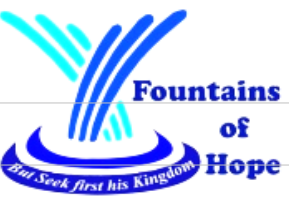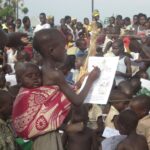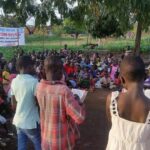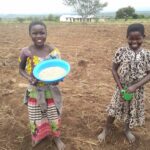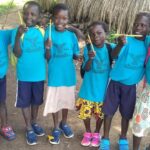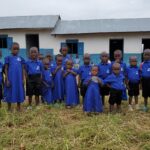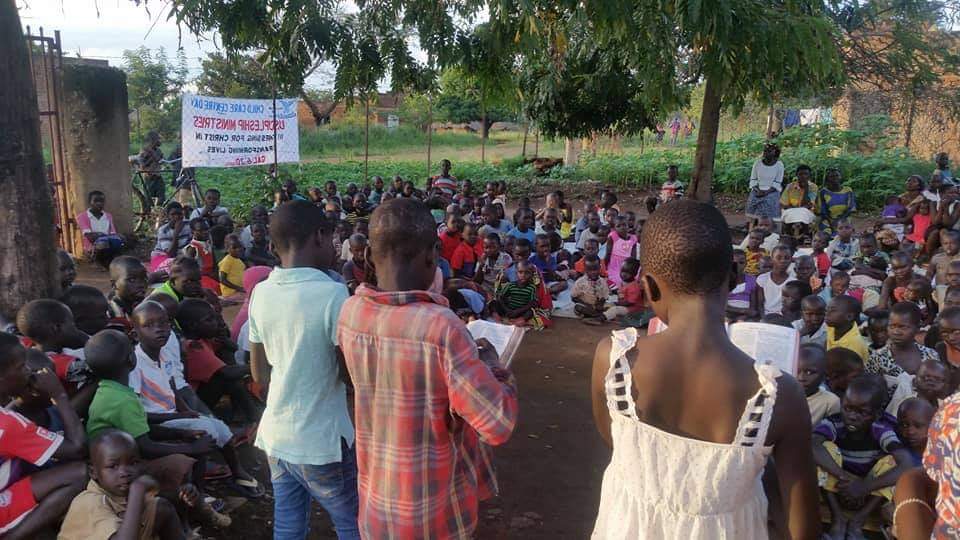Reader, as you engage with this document, you’ll see several words repeated throughout. Here is what we mean by them:
- “God”: The holy, triune God of Christianity. He is God the Father, Son (Jesus Christ}, and Holy Spirit. As the King of Kings and Lord of Lords, He is the only Creator, Redeemer, and Sustainer – there are none before or instead of Him. Please see our statement of faith for additional detail.
- “Vulnerable”: Someone who is at risk for harm or outsized difficulty because of the pervasive effects of extreme poverty in all of its forms and is often marginalized from society’s systems of power and well-being.
- “Redemptive”: Actions that participate in God’s work to reverse the effects of sin and the fall – pain, injustice, sorrow, and broken relationships with God, self, others, and the created order – and restore creation to flourishing through the life, death, resurrection, and ascension of Christ.
- “Capacity”: One’s own ability to accomplish something, empowered by God; an ability that is founded on knowledge, skills, character, and well-being. True, sustainable development work strengthens and celebrates capacity as one of its primary objectives.
- “Flourishing”: Someone who, restored to fellowship with God, is living in a state of well-being and whose foundational relationships are healthy and God-given gifts are faithfully used. Able to positively contribute to the peace and prosperity of one’s community, rather than detract from or harm it. Does not necessarily imply a particular financial status.
(Answering the question, “What is our worldview as an organization?”)
The world that we live in is broken by sin, but God defeated the power of sin and death through Jesus Christ and calls us to co-labor with Him in His great plan to reconcile and restore creation, to be partners in His magnificent story.
We are part of a larger story, the story in between creation, fall, and final restoration. We believe God made the heavens and the earth, designing the fullness of creation to reflect His glory and be for our good. Our choice to sin and embrace things lesser than God’s perfect design introduced suffering and death, fracturing the world and individual lives that God created in His own image, making it impossible for us to live forever in right relationship with a holy God. But God, in His tremendous love and grace towards us, sacrificed His sinless son, Jesus Christ, to bear the punishment that we deserve and defeat death through His resurrection. Those who trust in Jesus are redeemed, justified, and restored to union with God. Though He does not need us, God invites and equips us to participate in His reconciliation story as His co-laborers: To introduce others eagerly and humbly to Jesus. To sacrifice for others’ renewal and fullness rather than our own. To restore, through Jesus, our neighbors’ foundational relationships broken by sin: relationships with God, self, others, community, and the created order. Ultimately, to unfold the kingdom of God on earth as it is in heaven.
(Answering the question, “What problem are we trying to solve?”)
Within this broken world, there are children in Uganda who experience vulnerability in all of its painful forms but whom God designed to flourish.
Poverty is a complex problem with many faces. We all live in some kind of poverty: fundamentally, the most significant deprivation each of us is born into is the spiritual darkness that exists without a saving relationship with God. For some, it extends beyond spiritual poverty into a life made more dangerous and difficult by the effects of extreme material poverty often expressed in physical, emotional, and opportunity deprivation. This is the reality for many who live in Uganda. Relative to many other nations, Uganda has a dramatically large population of children, many of whom are made acutely vulnerable by the indiscriminate impacts of poverty in all its forms. Though they do not lack God-given identity, they suffer injustice and dishonoring of their dignity. Though they do not lack God-given capability, they do not share access to the same opportunities, resources, and infrastructure as those less vulnerable. Fountains of Hope stated objective is not to end socioeconomic poverty in Uganda. Eliminating every structural and individual factor that provokes poverty is beyond our power and scope, nor do we believe it is God’s intent that we make it our objective. What we are fighting to solve is this – we don’t want vulnerable Ugandan children to stay vulnerable.
(Answering the question, “Why does Fountains of Hope exist?”)
Therefore, Fountains of Hope exists to glorify God by empowering vulnerable children to live to the fullest expression of their God-given worth and potential.
Fundamentally, we exist to glorify God. Formed by God as His image-bearers, each of us glorifies our Creator by bearing His likeness, advancing His kingdom, and enjoying Him forever. At Fountains of Hope, we express this fundamental reason for living – glorifying God – through our shared commitment to serving Uganda’s most vulnerable children. Our loyalty to God and desire for the values of the kingdom of God – including dignity, hope, and shalom – to reign on earth are what compel and direct us: for all persons to thrive through a life marked by worship, justice, delight, and wholeness. Therefore, we choose to be a redemptive development organization whose chief objective is to empower vulnerable children to live to the fullest expression of their God-given worth and potential. We cooperate with God and others to invest in a child’s story; we honor and in no way seek to replace those already in a child’s life who love and sacrifice for the child or have a God-given responsibility to form the child, be it guardian, family, peers, or community. We also believe any work targeting vulnerability is only truly glorifying and renewing if it strengthens and celebrates capability, not dependency. We exist not to entrap children or families in cycles of dependency by doing for them what they can do for themselves, but instead to patiently improve a child’s own ability to overcome vulnerability and glorify God. That which is most durably beautiful takes time and partnership to create.
(Answering the question, “What specific population should we primarily serve?”)
We primarily serve children and youth ages 0-24 years old in Uganda living in the most vulnerable circumstances.
In extreme poverty, children are often the most overlooked and the most at risk: they often suffer the darkest injustices, feel poverty’s deprivation most acutely, and are denied access. Yet every child’s life has equal, inherent value, each of them given beauty and potential by their Creator. Our programs therefore serve the most vulnerable children, primarily those ages 0-24 years old. Child development takes time and process, so we intentionally bring in most children at a young age to benefit from early foundations and patient partnership. As children become young adults, our objective is for them to launch into the world as independent, capable individuals.
Today, we are focused on refugees hosting community in West Nile Uganda. It is possible that one day we have opportunities to move outside of West Nile to other areas of great need, opportunities we will consider only when we feel confident in our model’s capacity to serve vulnerable children in that context in an impactful, sustainable way.
(Answering the question, “What approach should we use to achieve our ultimate outcome?)
We do …
Redemptive child development
Guiding everything we do is a vision for impact where children living in poverty are given the tools to flourish. We remain relentlessly committed to promoting their dignity, empowering their God-given potential, and equipping them to own their own thriving through richly holistic – spiritual, physical, emotional, and intellectual – care. As part of God’s reconciliation story, we engage in redemptive child development:
Redemptive: We eagerly participate in God’s work to reverse the effects of sin and the fall – pain, injustice, sorrow, and broken relationships with God, self, others, and the created order – and restore creation to flourishing, through the life, death, resurrection, and ascension of Christ.
Child: We are child focused, drawing near to those made most vulnerable by poverty.
Development: We partner with children to patiently build their capacity – knowledge, skills, character, and well-being – to flourish and glorify God, empowering them to engage more fully in the kingdom of God. There is a place for relief work: crisis events where resources are provided over the short-term to reduce immediate harm. Development work, however, is reality-driven and focused on empowering people over the long-term. Our core focus is the latter.
Delivered through a Christian education platform and short-term residential services
Education will remain a core pillar of what we do. Providing vulnerable children with access to academics and trades unlocks opportunities for them to cultivate productive knowledge and skills, discover how God has gifted them, and engage with others. In our Legacy Academy and Excel Beyond programs, education will remain steeped in best practice, guided by God’s Word, and animated by teachers and staff who create a culture of unity, worship, and empowerment.
Additionally, our Tree of Life Children’s Village offers short-term residence and care to children whose home or health circumstances are extremely vulnerable – it is not meant to replace a child’s God-given family and community. Once a child’s circumstance has met the stringent care and safety standards set by our team and the Ugandan Department of Social Welfare, the child is reintegrated into their home, since connection to one’s community is the most effective setting for a child’s healthy development.
Complemented by targeted household ministry to create momentum for children to thrive
The child is our core focus. We do, however, understand the impact that a child’s home life and broader community can have on that child’s holistic well-being. We also deeply desire for children to love their families and neighbors, to grow into young adults who demonstrate generosity and commitment to their communities’ collective flourishing. In that spirit, we engage in targeted household interventions that create momentum for the children we serve to thrive. We are a child development organization, not a broad community development one. For what is beyond our core contribution, we are open to excellent, values-aligned partners and supportive of children and their families, thoughtfully directing and seeking out their own next steps
(Answering the questions, “What do we believe is a successful ultimate outcome for children in our program? What does success look like in each of our four pillars?”)
Our hope for each child in our program is that they would become a young adult who is committed to Christ, is emotionally and physically healthy, and possesses the skills and resolve to positively impact themselves, their family, and community.
Ultimately, we desire that each child in our program moves closer to living in right relationship with God, self, others, and the rest of creation both through what our ministry is called to influence and in concert with others in a child’s life, orchestrated by God’s sovereign rule and grace. Practically, we aim for young adults with improved capacity to navigate their world, solve their own problems, and build that same capacity in others. We believe this outcome is brought to life through four pillars of well-being:
Spiritual outcome: A child has the opportunity to understand the gospel and the Bible’s key narratives, have a personal relationship with Jesus Christ, commit to walking in Increasing spiritual maturity, and disciple others.
Only the Holy Spirit can prompt someone to accept the gift of salvation, but we are committed to providing consistent opportunities for a child to hear, understand, and come to love the gospel. For those who place their trust in Christ, we seek to shepherd them towards an increasingly mature and vibrant faith, desiring that they would walk by the Spirit, know what is wise and true, and lead a grace-filled life rooted in their relationship with Jesus Christ.
Intellectual outcome: A child is equipped with the knowledge, skills, and wisdom to earn a livelihood whose fruit provides for their own needs and contributes to those of their family or community.
The ultimate aim of our investment in a child’s intellect and opportunity is that each child would confidently, capably live a life of service to God and others through the fruit of their labor. There are certainly factors born of sin’s dysfunction that are in opposition to this hope, including structural inequities and economic conditions beyond an individual’s power to control. However, our hope is that every child would be characterized by productive knowledge and skills through academics (e.g., literacy, numeracy) or trades (e.g., agriculture, home economics, design & technology) pathways, a sense of humble responsibility, and a hunger to continue learning, contributing, and living out their gifts. Such things are essential to both securing a livelihood and experiencing full dignity as an image-bearer of God.
Physical outcome: A child understands how to steward their body towards improved health within the context given to them, advocate for and manage their own care needs, and honor and help the needs of others.
Through both knowledge and practice, and within the physical limits and gifts given to them, each child should develop the ability to independently improve their own hygiene, nutrition, and fitness. With those same skills, each child ought to also care for the needs and honor the bodies of others.
Emotional outcome: A child Is equipped to thrive in healthy, God-honoring relationships with self and others, enabled by self-awareness, healing from trauma, and mature social and relational skills.
We desire for each child to experience the many blessings of emotional health. Because freedom from trauma is foundational to giving and receiving love in a way that honors God, we are committed to providing children with opportunities to heal from past and present trauma. For the ability to navigate both their inner and relational life, we aim for every child to develop emotional wisdom and strong social skills: how to understand, express, and use emotions for renewal rather than pain and how to relate with others in a healthy, God-honoring manner.
(Answering the question, “What sets Fountains of Hope apart?“)
Fountains of Hope is set apart by …
Priority for depth of care in the most impactful areas of a vulnerable child’s well-being
The need is nuanced. Building a child’s capacity to become less vulnerable asks for an approach that cares for the elements at the core of their well-being: spirit, body, emotion, and mind. While holistic, our work is also focused, because depth of care and celebration of dignity require focus. We accept the wisdom in prioritizing our core contribution, instead of attempting to be all things to all children; in focusing on work that we believe is highest impact and most within our strength to deliver, we maximize our effort, excellence, and stewardship.
A posture that Is relational, participatory, and gritty
Relationships are integral to how our Creator designed us to flourish and are an undeniable characteristic of Jesus’s ministry on earth. Poverty is also often expressed through dysfunctional relationships – either to sources of power or opportunity, physical wholeness, or emotional well-being. Dignifying, patient relationships are therefore core to our ministry, in both our program choices and overall posture. We develop children’s ability to relate to others. We provide rich psychosocial care to facilitate children’s healing from trauma. We create opportunities for our constituents to engage with our work up close and appropriately relate with the children in our program. Ultimately, instead of standing far away, we get close and kneel down – shoulder to shoulder, eye to eye. We are not here to fix or to save: we partner with children, together mobilizing their God-given gifts for their improved capacity and our collective good.
Strategic use of owned and operated private Christian schools
Purposefully located in the Refugees host communities of West Nile where the most vulnerable children live, our network of private Christian schools are the primary platform for our work. Not only do our schools provide the indispensable place where much of our holistic care – discipleship, learning, counseling, and so on – takes place, but the fact that we own and operate them enables us to be adaptable. We have the freedom to design and implement innovative programming. We have the flexibility to change or scale when we discover room for improvement. And importantly, we can ensure that God is glorified in our schools’ culture and curriculum.
